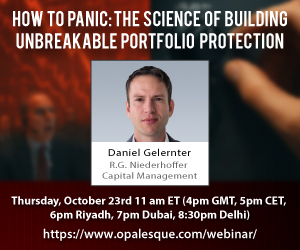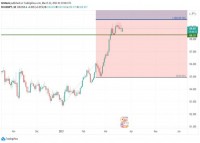|
Joy Abdullah, Brand Strategist, has more than 20 years of experience across ASEAN & the Indian sub-continent in developing and managing national, regional and international brands in a wide variety of industries covering Islamic Financial services, tourism, B2b Halal, telecommunications, beverages, real estate, tobacco, hospitality and healthcare.
In the April issue of OIFI we published the preliminary findings of the "Islamic Window: Consumer Perception and Market Research in Islamic Finance". For this issue we take a look at the comments and suggestions provided in the survey in order to ascertain current perceptions prevailing about the industry. Of the total comments provided, 22% are Islamic Finance practitioners, 35% are in related areas to Islamic Finance and 41% are not related to the Islamic Finance industry. This provides us with a wide range of views but also with a straightforward account of how the industry is viewed in the
"real world". Based on these comments, we have categorized the perception problem of the Islamic finance industry with regards to the following:
A. Transparency
B. Comprehension (understanding)
C. Brand marketing
D. Ethics & Governance
E. Human Capital
Transparency: Post the financial crisis, transparency is of grave importance to all - practitioners, consumers, investors and most certainly regulators. The research clearly indicated a perception of lack of transparency and the comments further suggest this needs to be addressed. Certain comments also echo how the industry can go about doing it.
"There is lot of grey areas and institutions are not complying and are not transparent".
"There is a sincere lack of transparency and credible reporting".
"Most Islamic Finance Institutions are shrouded in mystery. Their
clients are not informed of the many products. These institutions want to remain
superior to their clients as opposed to exercising equity and fairness. Educate
the masses on this."
"Islamic Financial institutions should be very careful in product
development and structuring".
Comprehension: The comments, qualitatively show, a rather poor comprehension or understanding of certain types of Islamic Finance products, the difference between Shariah compliance and Shariah based, and most critically the generic difference between the conventional financial system and the one offered by Islamic Finance.
"As a capital raising advisor I am becoming more aware of Islamic/Sharia finance and would like to know more. I am currently transacting a $200m deal between a SA Sheik and a US company and
working very much in the dark. Produce a plain language guide for us on which we
can build."
"I feel that Islamic products only appeal to the religious Islamic sector. Otherwise why bother? To fulfil which criteria? Are the resulting margins not pretty close to the conventional market trends? I feel it is only a trick that the concept of interest is put aside.
Otherwise how come the results can always be parallel to the larger global
market trends where interest is the deciding factor in calculations of returns?"
"The practical services provided by Islamic Financial Institutions need to
strictly follow the Principle which are followed by the conventional
Institutions to attract the customers."
"The Islamic Financial system is still way behind the conventional system due to lack of awareness and we need to emphasize more on publicising more into non-Muslim community and there can be a very strong argument for not matching with the conventional returns due to collaterized
investments."
Brand Marketing: In the area of marketing, the lack of transparency plays up as the respondents perceive that ethical marketing or strong individual corporate brand identities are not there. Coupled with this is the perception that conventional products are being made
"Shariah compliant".
"Islamic finance has a lot of promise but it has yet to adopt its unique paradigm with confidence. So we see a lot of copying of conventional products.
I will pay more for an Islamic Finance product if I believe it is compliant and
competitive (that I am not being taken advantage of)."
"I just want to say that Islamic Banks should avoid copying conventional banking system and forcibly modifying it to make it same as conventional products e.g; credit cards derivatives murabaha and tawarruq. They should maintain their USP by providing fully compliant and innovative products to the Muslims as well as non Muslims as this how they provide alternate system.
"We need real Islamic products not only shariah compliant which only
mirror the conventional ones."
"We need more up-to-date marketing with international offers for consumers.
Now it s mostly for the well-off people."
"Islamic Financial Products need aggressive marketing. The Islamic
Marketing Ethics need to be incorporated in all these campaigns i.e. The
customers’ interest should be given utmost importance and the products should be
transparent enough to be understood by most if not all of the prospective
customers."
Ethics & Governance: Based on the perception gaps in Transparency and Marketing, the perception for Ethics and Governance is also one that is lacking or of non-adherence. Leading to specific statements of how the Shariah scholars are constantly in disagreement with one another. However in the same light, there is the perception that Islamic Finance has the opportunity to deliver on Islamic values & financial acumen together for the consumers.
"We should have strong corporate governance to promote and build Islamic products".
"We need to standardize our Shariah positions and quell the notion of Shariah
Arbitrage as it’s is referred to."
"There are lots of apprehensions in the minds of people in terms of the trust on these Islamic products. There is also a knowledge gap with regard to the feasibility of these products to provide financial viability in terms of future prospects risk-returns and ROI
compared to other financial products. The Islamic institutes should step in the
shoes of the investor to get the big picture of what they really want."
"The Shariah scholars can’t agree to disagree. It’s a core problem
that will persistently bog down the potential of Islamic Finance."
"Most of Islamic rich people invest in Europe or USA. They should take care
of poor Islamic countries."
"Different standard of tolerance in screening should be avoided - Supervisory boards should be sound enough to hold the company on sharia
track"
"Islamic finance is brilliant way to build Islamic values and financial acumen simultaneously".
"With the actual crisis in the traditional financial system personally I think that the Islamic financial system & products may offer an alternative option branded by the faith & transparency".
Human Capital: Lastly, the respondents clearly perceive a lack of communication and availability of actual training, cross functional training (ie shariah knowledge with product development background) and Islamic Finance education which would help develop a pool of knowledgeable practitioners.
"I am a final year undergraduate student but I have knowledge of the industry through brief work experience in this field. I feel that more emphasis should be given to training fresh graduates
as they would be the future driving force behind this emerging market especially
in the UK and other areas in the West."
"We need more sharia scholars with business & financial experience/skills
in order to innovate & provide creative Islamic solutions which can be correctly
applied & that are fair to both institutions & clients."
"Islamic finance needs a through grassroots development education of the masses. This is critical to the success of the industry
".
"Where can i get the best islamic finance lesson and certification
online?"
| 




 RSS
RSS










